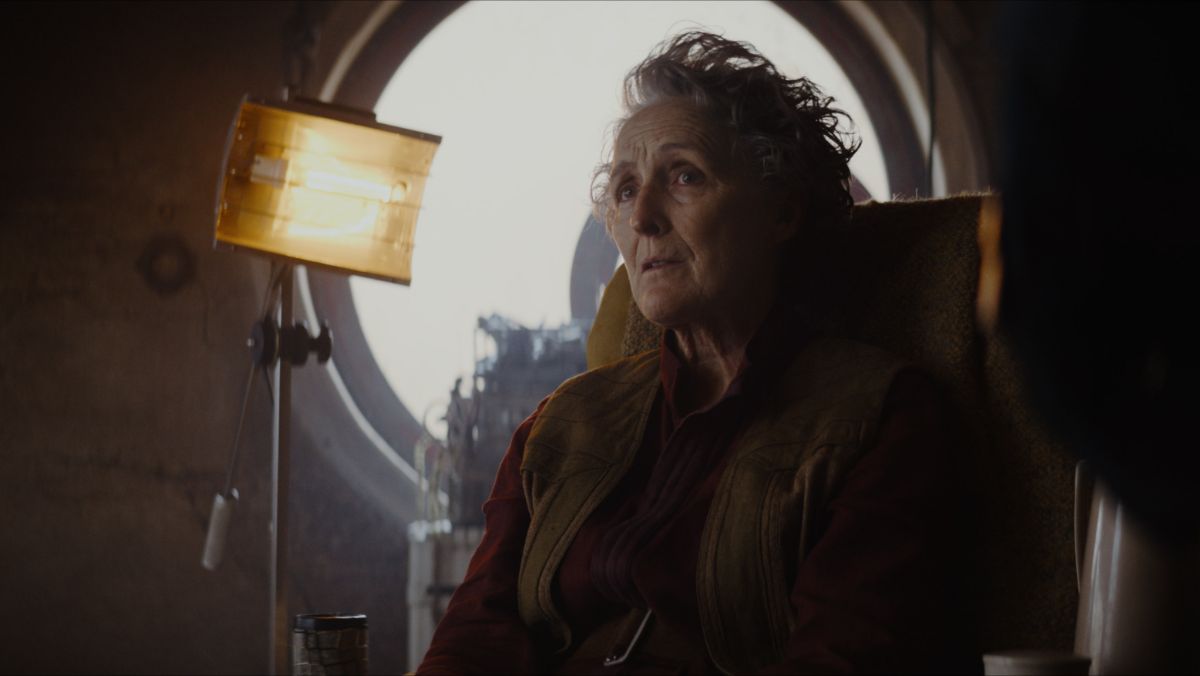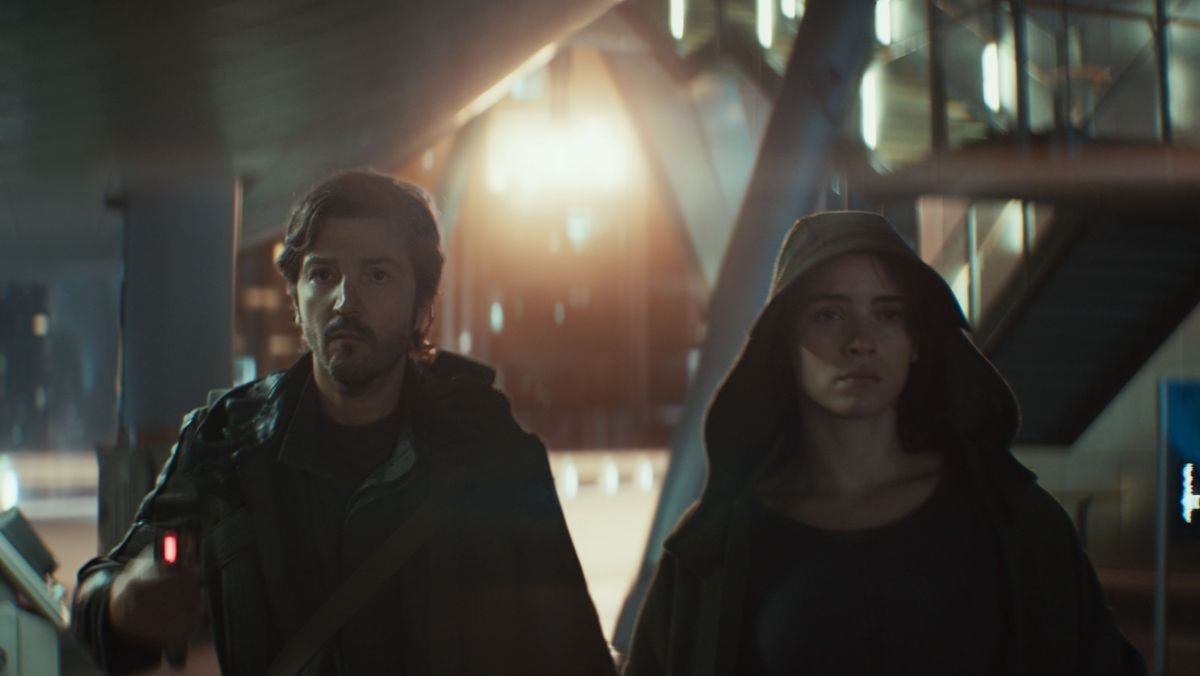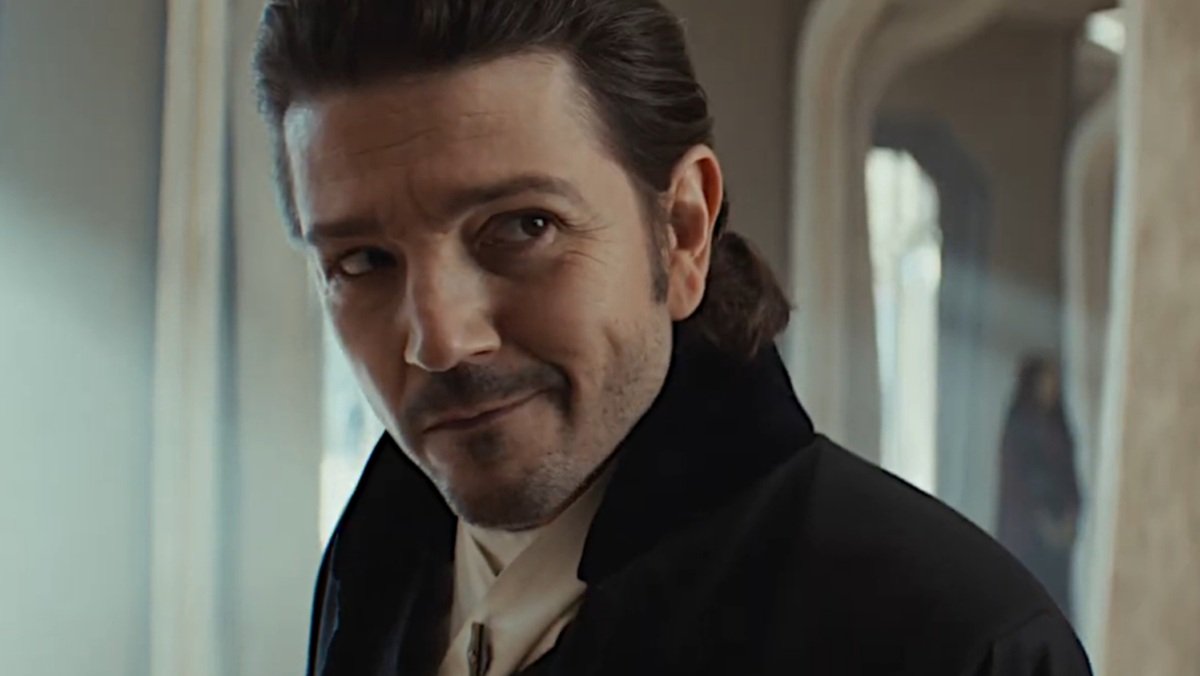For decades, Star Wars told us that the Jedi were the best of us. Noble warriors. Philosophical peacekeepers. Space monks with laser swords and deep thoughts. They were the moral compass of the galaxy, a beacon of hope, balance, and some really unfortunate parenting decisions. But then Andor came along, and in its gritty, boots-on-the-ground portrayal of rebellion, the Jedi are conspicuously and tellingly absent. And honestly? Good riddance.
Andor makes the quiet argument that the Jedi weren’t just irrelevant to the uprising against the Empire. They were liabilities and detached from everyday suffering. The Jedi were fixated with balance and prophecy, and wildly ineffective at stopping fascism when it counted. The Jedi Order had their shot. They blew it. Meanwhile, on Ferrix and Narkina 5, regular people are building the rebellion through sweat, sacrifice, and solidarity. Not the Force.
Andor doesn’t just sideline the Jedi, it reframes the entire rebellion without them. There’s no Force and no Midichlorians. No elegant solutions from a more civilized age. Just people. Flawed, desperate, courageous people, who decide that enough is enough. The result is the most grounded, morally complex, and weirdly hopeful take on resistance the franchise has ever given us. Andor isn’t just “what if Star Wars was prestige TV?” It’s a reevaluation of who actually fought the Empire and a reminder that revolutions are won by the people who show up, not the ones meditating about it.
Rebellion Is Built on Hope (and Actual People)
Let’s start with an uncomfortable truth: the Jedi failed. Not metaphorically. Not in a “the road to hell is paved with good intentions” way. They were spectacularly bad at their jobs. While Palpatine engineered a fascist takeover in broad daylight, the Jedi were too busy pontificating about balance to notice the galaxy was slipping into totalitarianism. Their detachment wasn’t just a quirk of their order. It was their fatal flaw.
Andor doesn’t waste time pointing fingers at them. It simply moves on. The Jedi aren’t mentioned, and frankly they aren’t missed. What replaces them isn’t another elite class of heroes. Instead, it’s working-class people, loners, bureaucrats, and ex-cons who decide to resist in whatever way they can. There’s no talk of prophecy or destiny in Andor. No one’s “the chosen one.” They’re just the ones who showed up.
Luthen Rael Is More Compelling Than Any Jedi, Fight Me
Enter Luthen Rael. Antique dealer by day, rebel mastermind by night, and walking existential crisis 24/7. He’s not wise nor grounded. He’s actually not even a good person. But he is the guy doing what needs to be done. His now-iconic monologue, “I burn my life to make a sunrise I know I’ll never see…” (chills, y’all), hits harder than any Jedi fortune-cookie wisdom. He’s not waiting for the Force to guide him. He’s making brutal choices, in the dark, for a future that might not come.
That’s the kind of leadership Andor values: not moral purity, but moral clarity. The willingness to compromise yourself to protect others. It’s the exact opposite of Jedi philosophy, which prioritizes detachment and individual spiritual balance over action.

And then there’s Maarva. She’s not one with the Force nor trained in combat. She’s a woman who’s built a life amid the Empire’s growing shadows, who loses her husband, and who still finds the courage to spark a rebellion. Her funeral speech, pre-recorded, played through a droid turned projector, and backed by a marching band, might just be the most rousing moment in all of Star Wars. No lightsabers. No mind tricks. Just truth, defiance, and a call to arms. It’s enough to make you want to camp outside a Tesla dealership with a pile of angry signs.
What makes this moment so extraordinary isn’t just the words themselves, but how Maarva uses what little she has left, her voice, her droid, her final moments, to spark resistance. She can’t physically fight the Empire anymore, but she finds a way to rouse her community and Cassian anyway. It’s a perfect distillation of what makes Andor’s approach to resistance so powerful: using whatever tools are available, no matter how modest, to fight back against overwhelming odds.
Compare that to Yoda, calmly telling Luke “Wars do not make one great,” after a lifetime of co-signing them from a distance. The contrast is brutal.
The Absence of the Force Makes It All More Powerful

Ironically, by taking the Force out of the equation, Andor gives us the most powerful version of hope in the franchise. Without Jedi powers or galactic destiny, rebellion becomes something anyone can choose. It’s no longer about whether the Force is with you. It’s whether you’re willing to risk your life for someone else. Plain and brutally simple.
There isn’t a single lightsaber ignition, and the show is better for it. The mystical (read: impractical) weapons of the Jedi are replaced with blasters that jam, improvised explosives, and sometimes just a brick thrown at the right moment. The absence of lightsabers isn’t just a stylistic choice; it’s a thematic statement. It tells us that resistance doesn’t come from special powers or ancient lineages. It comes from necessity, from rage, from love.
When Cassian faces down stormtroopers, he can’t deflect their blaster bolts. When Luthen escapes an Imperial cruiser, there’s no mind trick to save him. They survive on wits, grit, and sometimes sheer desperation. The stakes feel higher because everyone is vulnerable. No one is guaranteed to make it out. And that vulnerability makes every act of courage more meaningful, every sacrifice that much more devastating.
Think about Kino Loy, played to perfection by Andy Serkis. He starts out just trying to finish his prison sentence, only to realize the system was never going to let him go. He leads a prison break fueled by chaos and raw courage, only to reveal he can’t swim.
It’s devastating not just because it means he can’t follow the others to freedom, but because the prison was built with that in mind. The system didn’t need fences or an army of guards. It relied on fear, false hope, and the simple barrier of water. Kino gave everything to free others, only to be stopped by something so ordinary, so human. No grand exit. No reward. Just one man who did what he could to help others escape, knowing he’d be left behind.
Or Bix. Poor, sad, tortured Bix. Broken. Haunted. And yet when it matters, she still holds the line and resists. No Jedi ever had that kind of strength, at least not without the Force to carry them. Andor strips rebellion down to its barest truth: people fighting for each other, not because they’re destined to, but because they have to.
The Jedi Were Legends. The Rebellion Was Real.
This isn’t about dunking on the Jedi for the sake of it. They had their moment. Luke’s arc in the original trilogy is still powerful. A farm boy, swept up in a galactic war, learning that true power comes from faith and compassion? Meat and potatoes kind of hero’s journey stuff.

But Andor belongs to a different tradition and a different time. It’s not mythic. It’s political. It doesn’t believe in fate. It believes in people and that fascism isn’t beaten by space magic. It’s beaten by solidarity, sacrifice, and a decision to act.
The Jedi stood apart from the galaxy. The characters in Andor are steeped in it. They get hurt. They get compromised and they lose. And yet, they fight. That’s not just more realistic. It’s more inspiring.
The Galaxy Didn’t Need More Jedi. It Needed More People Like Maarva.
In a galaxy full of ancient prophecies and chosen ones, Andor reminds us that revolutions aren’t started by the divine. They’re started by the desperate, the furious, and the brave. The Jedi were legends. But the people of Ferrix, Narkina 5, and Coruscant’s underworld? They’re the reason there’s a New Republic at all.
So maybe the Force is still out there. In A New Hope, the Force is everywhere, spoken like a prayer, a mystery, a myth. But in Andor, the real force is community. Collective action. People who light themselves on fire so someone else can see the way.
History remembers the Jedi, but freedom was built by the forgotten, those who fought not because they were special, but because they refused to be silent.
Content shared from nerdist.com.

